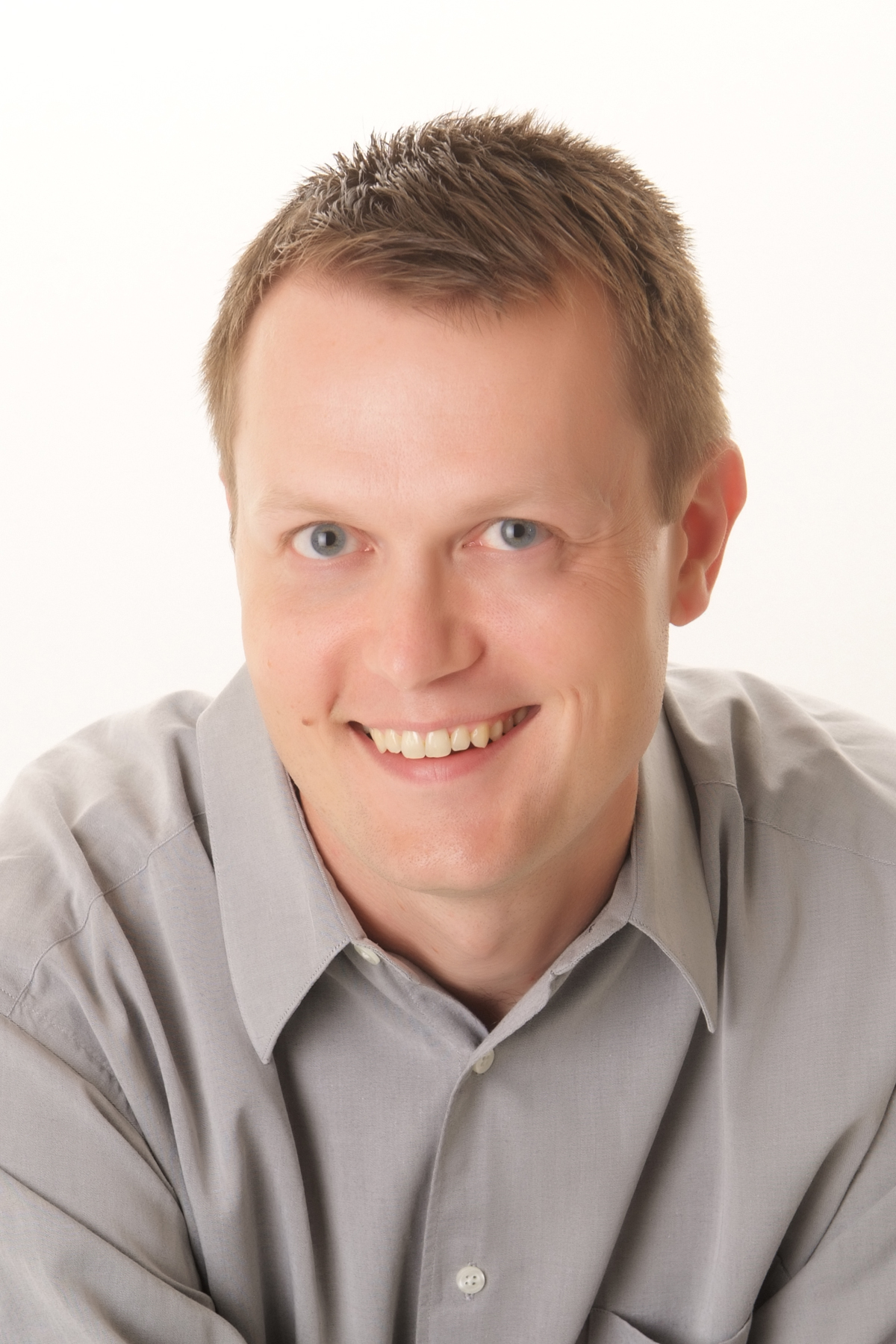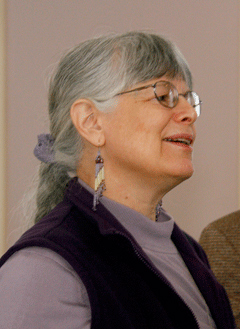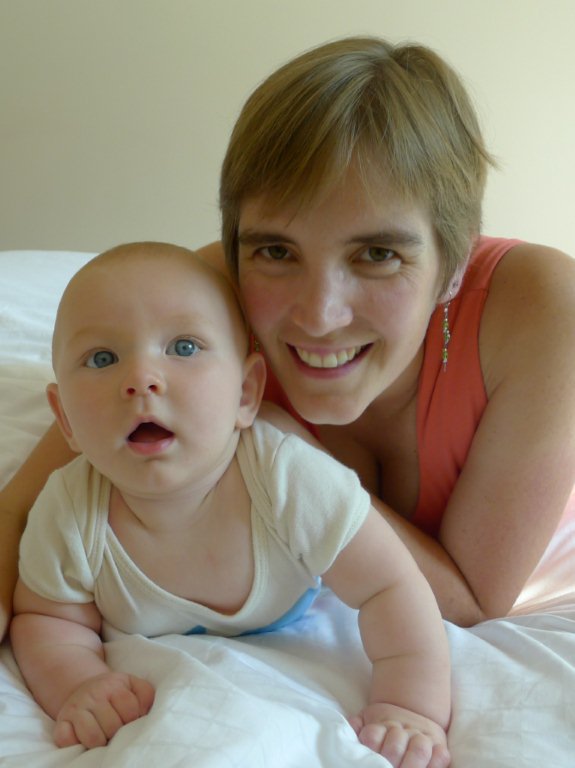 Andy Call is Pastor of the First United Methodist Church in Oberlin. He moved to Oberlin in Summer 2012 with his wife and their three children. Andy is enthusiastic about the renovations at FUMC, especially the improved children’s classrooms. He says, “It’s an exciting project because it will provide a safe, clean environment for children to be and we are doing it in a way that we think is responsible with the resources we have.”
Andy Call is Pastor of the First United Methodist Church in Oberlin. He moved to Oberlin in Summer 2012 with his wife and their three children. Andy is enthusiastic about the renovations at FUMC, especially the improved children’s classrooms. He says, “It’s an exciting project because it will provide a safe, clean environment for children to be and we are doing it in a way that we think is responsible with the resources we have.”
Q: What word or image would you use to describe Oberlin?
A: Progressive. I think of us being a progressive community in many ways, not just in terms of political but also in terms of being on the new edge, on the leading edge of thinking of alternative ways of living in many ways that other communities would find to be countercultural.
Q: If you defined “sustainability” for your own life, what would that be?
A: I think of sustainability as ongoing existence, whether we talk about it from an economic sustainability or an environmental or planning sustainability, the idea that we don’t have an unlimited life span, we don’t use resources in a way that will cause those resources to run out, we use resources in a way that is understood to be renewable and ongoing.
Q: What actions are you engaged in that relate to sustainable life choices or living, either in your home life or the life of the congregation?
A: We talk about environmental sustainability. Rather than trying to find a way to filter out the water that comes through our system or having people buy bottles of water, we have a couple jugs of water, we take them regularly up to one of the nearby natural springs and refill them. We think that is a good model because it is healthy and it’s reusing resources that are plentiful. When we decided to start this coffee project that we are running when students are on campus, we intentionally made an effort to use local resources. So we work with the Oberlin Market, organic fair trade coffee, same with sugar and cream and tea, we get that fair trade as well. As we start new projects we think about environmental sustainability and healthy systems that help people to be healthy in interactions with each other and with their environment.
Q: How do you feel these actions are important?
A: I think it’s important for a number of reasons. First of all, it’s just good stewardship. Stewardship is a word that we use in faith communities a lot. We understand our role in this world not as owners of creation or as masters of creation in any way, but to say that God has entrusted us with this creation and we are responsible to take care of it. So in terms of good stewardship, we believe in using products that are organic or are renewable or don’t pollute the environment. It’s also a good thing in terms of what we model as a faith community-- we can share that with the people that come through the doors, whether they are ongoing members of the church or just people who come and visit. We have a chance to share a message with them: “these are values that we embody and we hope that you will as well,” without being prescriptive about that and telling people what they ought to do or how they ought to live. We just think being a good model of that is responsible as a faith community.
Q: Is there anything you would like to tell your fellow community members regarding care for the environment?
A: I’m not big on making speeches, other than just to say be aware. Awareness is the first issue in recognizing that none of this is on a permanent basis. All of the resources that we draw from the earth and others around us, there is no guarantee that they will always be here. Just being aware of how we use things and being responsible as much as we can be. I hope we are starting to be more aware of those things and Oberlin is certainly way ahead of the curve in terms of most communities. We think of resources often as financial resources first and think about other impacts second. It’s said that we know the cost of everything and the value of nothing. We really would do better if we stopped worrying about cost and started thinking about overall impact. Cost is certainly a factor, but it can’t be the only determining factor of something’s value.
]]> Barbara Fuchsman has been an Oberlin resident for 43 years. She is a layperson at the Oberlin Unitarian Universalist Fellowship. She works closely with the Santa Elena Project that supports human rights for workers in Guatemala. She enjoys gardening with her husband.
Barbara Fuchsman has been an Oberlin resident for 43 years. She is a layperson at the Oberlin Unitarian Universalist Fellowship. She works closely with the Santa Elena Project that supports human rights for workers in Guatemala. She enjoys gardening with her husband.
Q: What word or image would you use to describe Oberlin?
A: One word I use is “oasis.” Oberlin is an oasis of liberal thinking. I do think Oberlin has got wonderful people and it’s a wonderful, warm place to live.
Q: How is it you came to live in Oberlin?
A: My husband succeeded in obtaining a job and we were quite happy to come here. I went to a small college myself and I had been a trapped housewife in suburbia with no car, so I thought it was amazing to come here and walk places and people were friendly.
Q: If you defined “sustainability” for your own life and perhaps for the life of the Unitarian congregation in Oberlin, how would you do that?
A: Something that is sustainable is something you can keep on dong for as long as you want to and you won’t be prevented by a lack of resources or you won’t be destroying the environment around you.
Q: Can you speak to actions you take in your own life that relate to sustainability or in the life of the [Unitarian Universalist] Fellowship?
A: My husband and I enjoy gardening and we have a big compost pile that we use to improve our soil. When the Unitarian Universalist Fellowship began our work to become more sustainable, Cindy Frantz created a survey, which we all took, which gave us a gauge of how we as members were helping to live sustainable lifestyles. We took this survey as individuals, and then we made commitments, then filled out the survey later to see improvement as a congregation. The Fellowship has been certified as a Green Sanctuary Congregation. We have bought a building just this last year, so we have an awful lot to do because it’s expensive initially. It takes capital to put on a green roof, to insulate, to put a solar panel on the roof. Over the last few years we have been concerned about ethical eating, and now we have to be concerned about the building. We are talking about sponsoring a homemade, local foods exchange. We are creating a garden. There’s a narrow area between us and Computers Unlimited that we have taken up to clean, because there was an abandoned gas well there. We’re putting manure and leaves and developing permaculture. We hope to use it.
Q: How do you feel that these actions are important? How does it enrich the life of the congregation, having these considerations?
A: I think the garden project is quite important for the neighborhood and in fact plugging the gas well was extraordinarily important. There was a terrible smell and Columbia Gas was trying to blame the gas well. The ODNR came and in a couple days Columbia Gas was digging and they were exposing pipes with huge holes. The whole neighborhood was grateful and it was important. But making a garden here is going to make a big difference. The landscape people thought it would take longer to knock down a screen that made the open space a little bigger. One man had created a beautiful Zen garden that you could see from the road or walking, so people could see it when walking. What a wonderful improvement it was! It is important to the community. Why is it important to be sustainable? If we can recycle, which we are doing, and compost our stuff and try to use energy in the most efficient way, we can make it possible for our grandchildren to still live comfortably, when it comes to it. We are not going to stop Climate change, it’s happening, it’s true.
Q: Is there anything you’d like to tell your fellow community members about making sustainable life choices or considering care fro the environment as important?
A: Well, we are all interconnected and what we do, everything we do impacts back on ourselves. So since we are part of this wonderful interworking web, whatever we do to the web we do to ourselves. So beware. And that’s true socially as well as environmentally, and we need to realize that. If we do something destructive to others, it will come back in various ways to find me, and that’s certainly true in the environment. It’s part of Unitarian Universalism, that we are part of an interconnected web, which we know we are, and it does have huge implications.
]]> Amanda Schmidt has lived in Oberlin since 2011. She is Assistant Professor of Geology at Oberlin College and is active with the local Baha’i community. She studies human-landscape interactions, primarily in China and enjoys traveling with her 8-month-old son Colby. Amanda and her husband are competitive mountain bikers and race locally in mountain bike and cyclocross races.
Amanda Schmidt has lived in Oberlin since 2011. She is Assistant Professor of Geology at Oberlin College and is active with the local Baha’i community. She studies human-landscape interactions, primarily in China and enjoys traveling with her 8-month-old son Colby. Amanda and her husband are competitive mountain bikers and race locally in mountain bike and cyclocross races.
Q: What word or image would you use to describe Oberlin?
A: I guess Oberlin reminds me of a friendly New England college town. I went to grad school in the northwest and there aren’t towns like this. Definitely friendly, and it’s kind of an eccentric town. Very accessible.
Q: Would you care to elaborate?
A: We talk a lot about how Oberlin is very walkable, we can walk from our house to downtown, I walk to my office. There are no chain restaurants. There are always locally owned restaurants and businesses and good options of places to eat and we don’t feel confined. Yes, we are close to Cleveland but we don’t go in to Cleveland to do things. This is really a nice vibrant community to live in. People are welcoming.
Q: If you defined “sustainability” for your own life and perhaps for the Baha’i community in Oberlin, how would you do that?
A: We have general things like “you should be kind to all creatures.” `Abdu'l-Bahá, the son of the founder of the faith, talks about in the future having small almost local agriculture based, we’re going to be in small communities and eating things from the surrounding areas. We talk a lot about being sustainable with human resources, and having our actions, the activities that we start and the activities that we participate in be things that we can maintain with the people in our community. What can do to train people to do things that are within our capacity within this community? In terms of our family, my husband and I try to make decisions that minimize our use of resources. We chose to buy a diesel car over the summer, knowing that he’s commuting and knowing for highway miles it’s better than the Prius. We use cloth diapers on our baby; we don’t keep the house too hot and not too cold in the summer.
Q: How do you feel these actions are important?
A: I think I’ve realized that I really care about the environment. Like, I really care. I have become a lot more passionate about alternative energy because you can’t just tell someone to put on a sweater or get a blanket or just wear a tank top in the summer, because I really care and I still have my heat at 68 because I have a baby. It’s the same with the cloth diapers, it’s not that we’re super anal, we use disposable diapers at night, but we don’t use a diaper service, we use cloth diapers that go on and off like regular diapers. We are trying very much to live in a way that is sustainable but I’m doing things that [other people] could imagine doing also.
Q: Is there anything you’d like to tell your fellow community members regarding care fro the environment or making sustainable life decisions?
A: I think it often saves money. If you think about what you spend money on, you can be better for the environment AND saving money and that is probably a better incentive than vague, big picture things that don’t hit home to people very well. If you change your heat or put new insulation around your door to fix the draft or keep your door shut, little things, you will reduce your Columbia gas bill by this amount every month. It’s going to make a difference to people. We need to not be ashamed to go with the selfish route. We save a lot of money on diapers; we only spend about $500 up front on cloth diapers, which is about as much as you’d spend in 6 or 8 months with disposable diapers.
Q: Do you think about how you will raise your son with concerns for the environment and pass along the passion you have?
A: I want a lot of things to just be habit. Growing up in the 80s, it was habit that we never littered. I want my son to grow up thinking, this is the habit that we recycle everything. This is where we take the toilet paper rolls to the recycling not in the trash. We think about the impact of that kind of thing. I hope we involve him in discussions about putting in geothermal heat for the house. And he’ll be going with me for field work in the summer and I hope to be able to continue to take Colby and any future siblings so they can see that what I do is environmentally related.
]]>